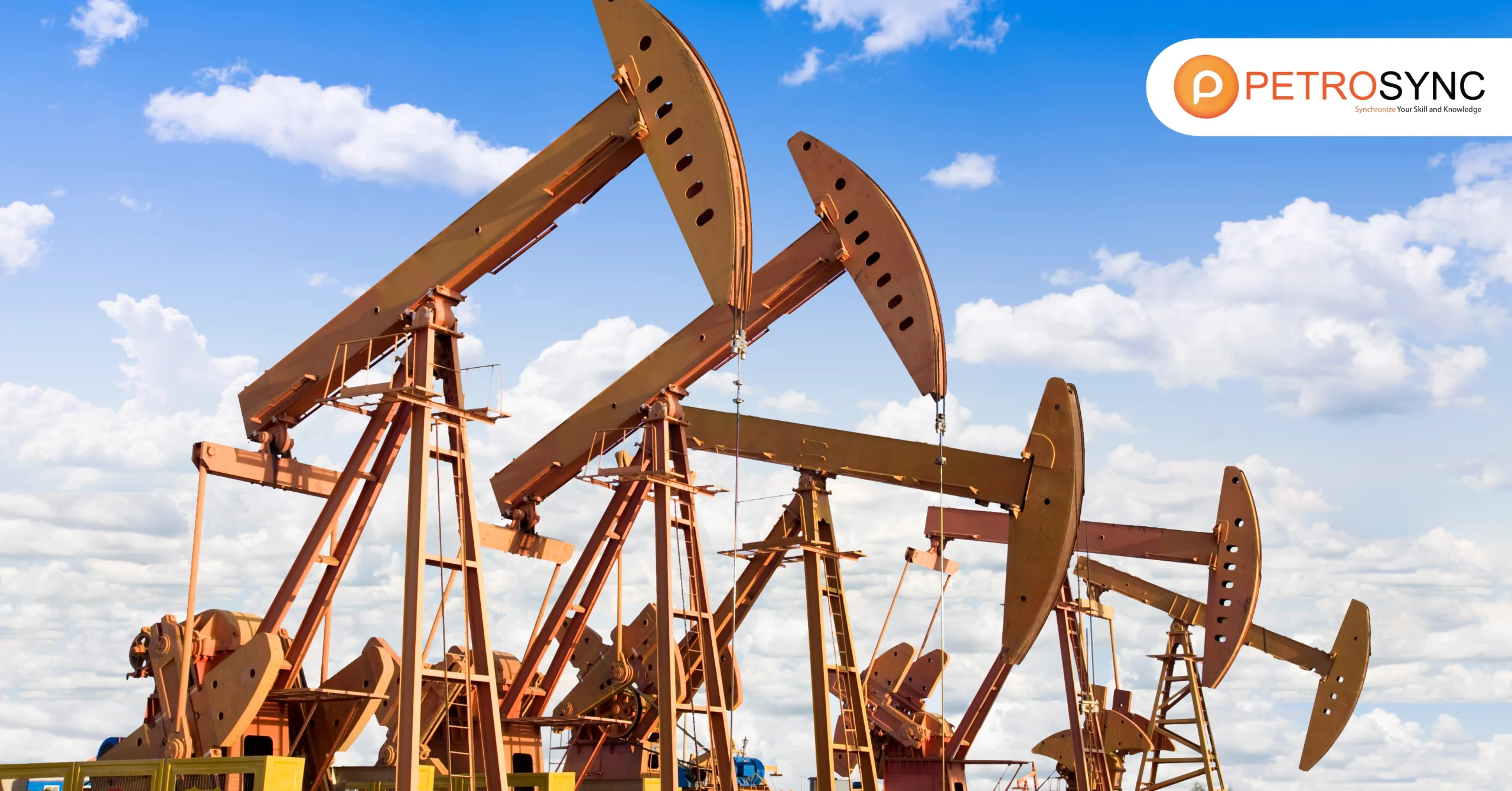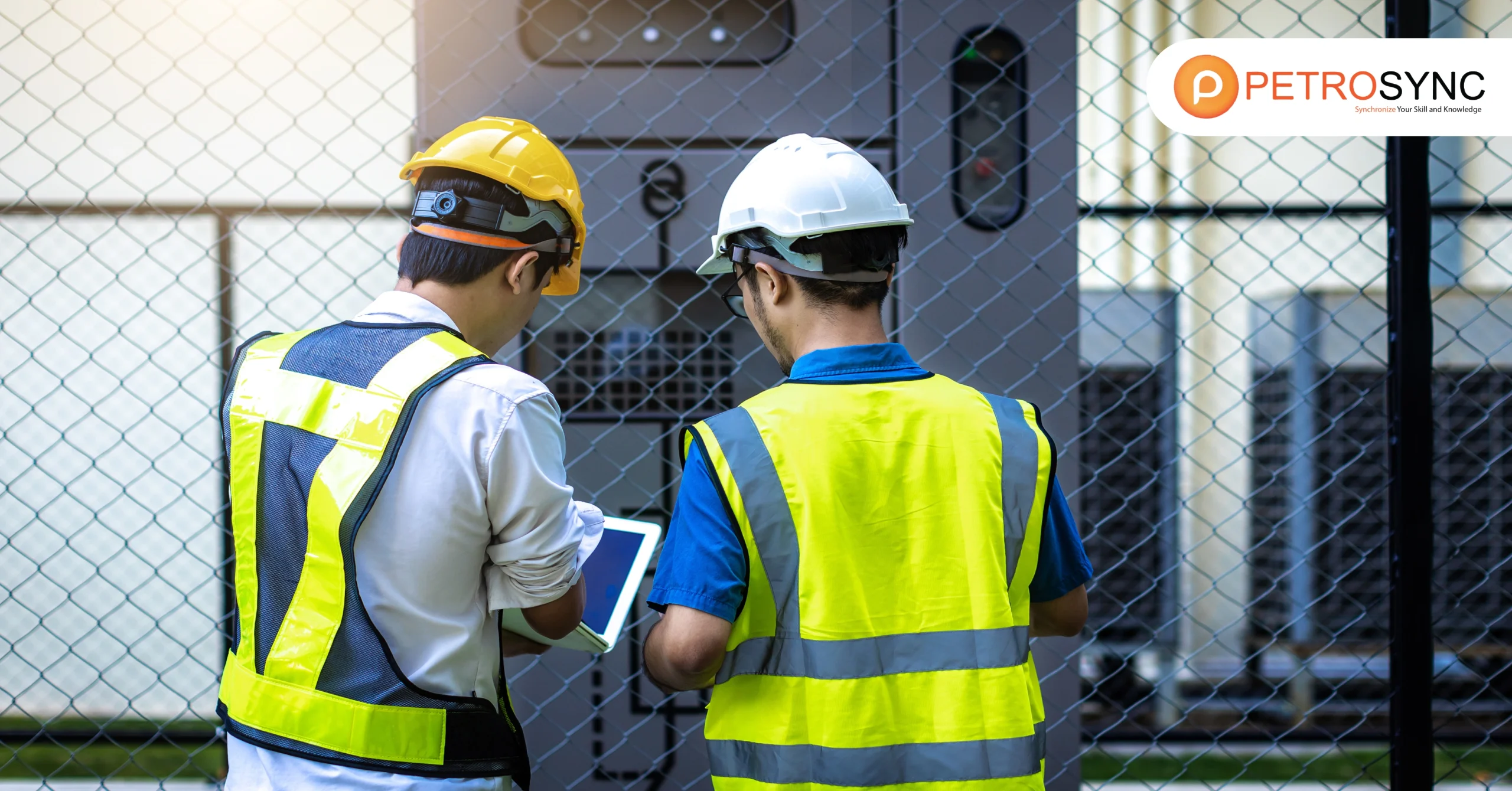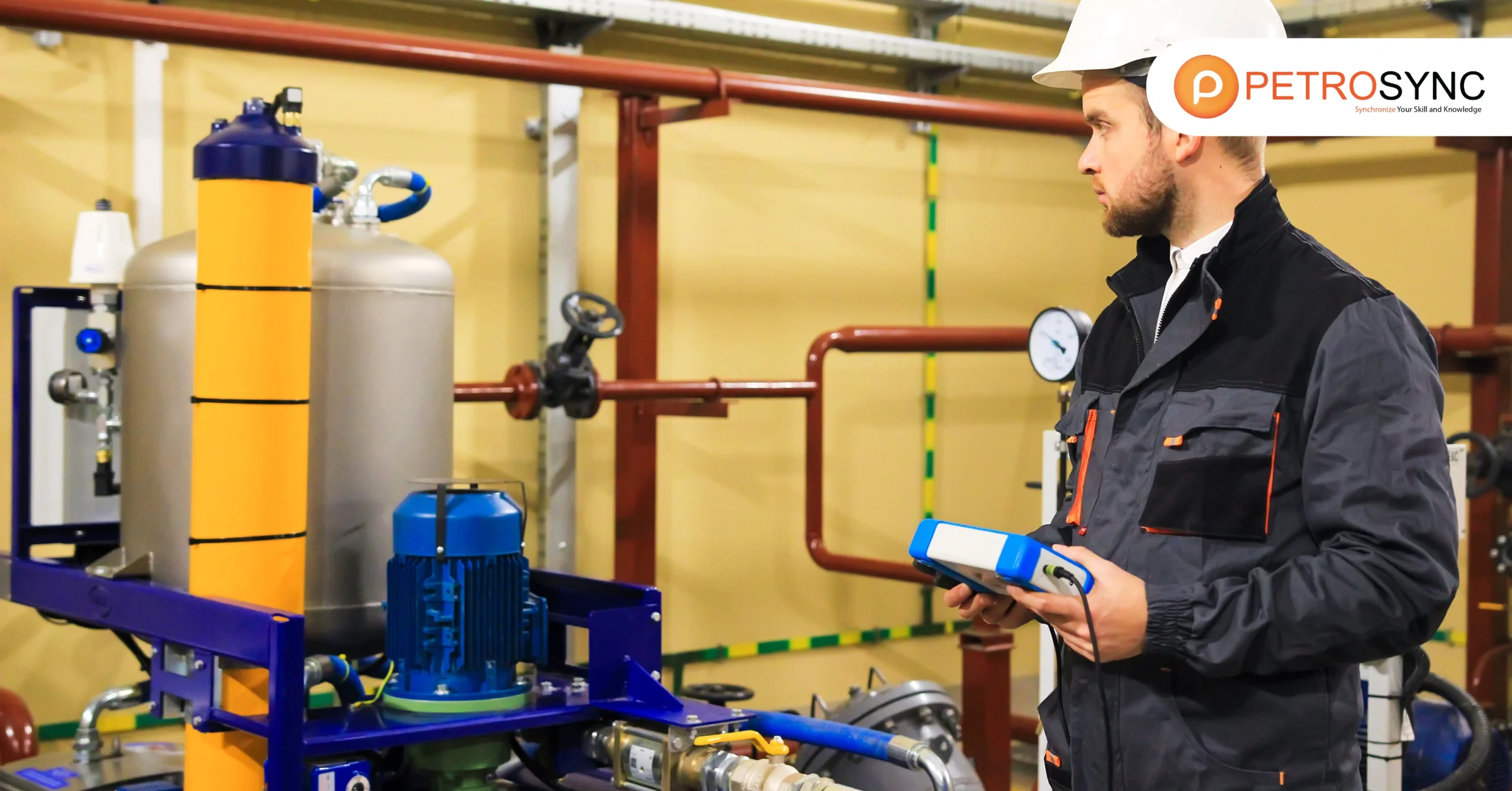Embarking on the API Inspector Course is a significant step toward a rewarding career. This guide explores the course, offering a roadmap to success in oil and gas inspections.
What’s The Role of An API Inspector?
API Inspectors perform internal and external inspections to determine if equipment, such as pipelines and other components, meets the acceptance criteria outlined by the American Petroleum Institute (API) standards. Their role is crucial in ensuring the safety, quality, and compliance of oil and gas operations, contributing to the integrity and efficiency of the facilities you inspect.
What Are An API Inspector’s Responsibilities?
In general, there are some responsibilites of an API Inpsector:
1. Reviewing Process Changes Impacting Integrity
API Inspectors meticulously assess any process alterations that might affect the integrity of the equipment. This involves a thorough examination to ensure these changes align with established standards and regulations.
2. Ensuring Procedural Adherence
An API Inspector is responsible for ensuring strict compliance with all relevant procedures and protocols during inspections. This commitment guarantees consistency, reliability, and adherence to industry best practices.
3. Crafting Comprehensive Inspection Plans
API Inspectors play a pivotal role in developing thorough inspection plans. These plans detail the specific steps, methodologies, and criteria guiding the inspection process.
4. Verifying Material Consistency
Before and during inspections, API Inspectors verify that the materials used in equipment meet specified standards and specifications. This verification is essential to ensuring the quality and reliability of materials.
5. Determining Inspection Intervals
API Inspectors establish suitable intervals for inspections, considering factors such as equipment usage, industry regulations, and material characteristics.
6. Ensuring Compliance in Activities
API Inspectors ensure that all inspection, non-destructive evaluation (NDE), and testing activities strictly adhere to regulatory requirements. This oversight guarantees the accuracy and reliability of the inspection process.
7. Thoroughly Reviewing Test Results
Post-test completion, API Inspectors diligently review and evaluate the results. This meticulous examination is crucial for identifying potential issues, deviations, or areas requiring further attention.
8. Conducting Physical Inspections
API Inspectors physically carry out inspections, carefully examining equipment, structures, or components to identify defects, vulnerabilities, or signs of deterioration.
9. Authorizing On-Stream Inspection Work
API Inspectors hold the authority to approve on-stream inspection work, allowing inspections to be conducted while equipment is in operation.
10. Assessing Defects and Deterioration
In the presence of defects or deterioration, API Inspectors assess the severity and implications of these issues, determining necessary steps for resolution.
11. Granting Authorization for Repair and Alteration
Based on their assessments, API Inspectors have the authority to authorize and approve repair and alteration activities, ensuring that corrective measures align with industry standards.
12. Identifying Critical Hold Points
API Inspectors recognize specific stages in the inspection and repair process where hold points are essential. These hold points ensure critical inspections or evaluations occur before progressing further.
13. Monitoring Repair Work for Compliance
Following authorization, API Inspectors actively monitor repair work to ensure alignment with approved plans and compliance standards. This oversight is crucial for maintaining the integrity and safety of the equipment.
How Does The API Inspector Course Aid in Becoming Proficient?
The PetroSync API Inspector Course can be your vital pathway to expertise in oil and gas inspections. It is strategically designed to equip you with the knowledge and skills needed for API inspection and certification excellence.
1. Alignment with API ICP Body of Knowledge
The course curriculum by PetroSync is thoughtfully designed to align seamlessly with the API ICP Body of Knowledge. This ensures you are well-prepared for the certification exam, covering all essential topics and domains.
2. Mockup Exams for Familiarity
The API Inspector Course includes mockup exams to enhance readiness for the certification exam. These practice assessments provide you with a valuable opportunity to familiarize yourself with the questions you may encounter, ultimately boosting your confidence and performance.
3. Practical Orientation for Real-World Application
PetroSync’s API Inspector Course goes beyond theoretical learning. It is crafted to be more practical-oriented, allowing you to apply the knowledge gained to your day-to-day job responsibilities directly. This hands-on approach ensures that the skills acquired are theoretical and readily applicable in real-world scenarios, enhancing overall proficiency.
What Topics Does PetroSync’s API Inspector Course Cover?
1. API 510
API 510 focuses on the inspection of pressure vessels within the oil and gas industry. It offers a certification program, providing professionals with the expertise needed to conduct thorough examinations and assessments of pressure vessels, ensuring compliance with industry standards.
| Duration | 5 Days | |
| Cost | USD 3150 | |
| Place | Indonesia and Malaysia | |
| Instructor | Chintamani M. Khade | |
2. API 570
API 570 centers on the inspection, repair, alteration, and rerating of piping systems in the petroleum and chemical industries. This certification program equips you with the knowledge and skills necessary to assess and maintain the integrity of piping systems, contributing to the safety and efficiency of industrial operations.
| Duration | 5 Days | |
| Cost | USD 3150 | |
| Place | Indonesia and Malaysia | |
| Instructor | Chintamani M. Khade | |

3. API 571
API 571 is dedicated to the principles and practices of damage mechanisms in the refining and petrochemicals industries. This standard not only provides valuable insights into the identification and assessment of various damage mechanisms but also offers a certification program. The certification equips you with the expertise needed to understand and address complex issues related to damage mechanisms, enhancing your ability to make informed decisions regarding inspection and maintenance strategies.
|
API 571 Training – Damage Mechanisms Affecting Fixed Equipment in the Refining Industry |
||
| Duration | 5 Days | |
| Cost | USD 3150 | |
| Place | Indonesia and Malaysia | |
| Instructor | Chintamani M. Khade | |
4. API 579
API 579 is a standard for assessing existing equipment’s structural integrity, including pressure vessels, piping, and tanks. While API 579 does not offer a certification program, you can pursue certification through API 510 or API 570, both of which incorporate elements of API 579 in your assessments.
| Duration | 5 Days | |
| Cost | USD 3150 | |
| Place | Indonesia and Malaysia | |
| Instructor | Mandar Mulay | |
5. API 580 and API 581
API 580 focuses on the risk-based inspection (RBI) of equipment in various industries, including oil and gas. Complementing this, API 581 provides quantitative RBI methodologies. API 580 has a certification program, emphasizing expertise in risk-based inspection. In contrast, API 581 is a recommended practice and does not offer a separate certification.
| Duration | 5 Days | |
| Cost | USD 2850 | |
| Place | Indonesia and Malaysia | |
| Instructor | Mandar Mulay | |
6. API 653
API 653 is dedicated to the inspection, repair, alteration, and reconstruction of aboveground storage tanks (ASTs). Through its certification program, API 653 ensures that you possess the necessary skills to assess and maintain the structural integrity of aboveground storage tanks in industries like petrochemical and refining.
|
API 653 Training – Tank Inspection, Repair, Alteration, and Reconstruction |
||
| Duration | 5 Days | |
| Cost | USD 3150 | |
| Place | Indonesia and Malaysia | |
| Instructor | Chintamani M. Khade | |
7. API 936
API 936 is specific to the refractory installation quality control of monolithic refractory linings. It is applicable in industries such as petrochemical and refining. The certification program associated with API 936 equips you with the knowledge and skills required to install refractory linings, ensuring high-quality and durable constructions.
|
API 936 Training – Refractory Material Design, Application, Installation and Inspection |
||
| Duration | 5 Days | |
| Cost | USD 3150 | |
| Place | Indonesia and Malaysia | |
| Instructor | M. El-Sayed Mahmoud Shama | |
What Are Some FAQs about the API Inspector Course in PetroSync?
Some of the most frequently asked questions regarding API Inspector Course in PetroSync are:
1. What is the duration of the API Oil and Gas Inspector Course?
The API Oil and Gas Inspector Course offered by PetroSync lasts 5 days. This condensed time frame is packed with essential materials, providing you with a comprehensive and intensive learning experience within the specified period.
2. Is prior industry experience required for enrolling in the API Oil and Gas Inspector Course?
While beneficial, the course is designed for individuals at various career stages, from beginners to seasoned professionals.
3. How does API certification enhance career prospects?
API certification signals expertise and commitment, providing a competitive advantage in job applications.
4. Are there specific prerequisites for the API Oil and Gas Inspector Course?
While a background in engineering is beneficial, some programs may accept candidates with a strong interest in the industry.
6. How often is the API certification renewed?
API certifications typically require renewal every three years to ensure inspectors stay updated with industry standards.
In conclusion, enrolling in the API Inspector Course proves to be a strategic investment for individuals seeking substantial benefits, especially in certification preparation and career enhancement.
The course, meticulously designed by PetroSync, not only equips you with the knowledge and skills required for successful certification but also offers a valuable opportunity for professional development.
Whether you aim to achieve API certification or aspire to enhance your career prospects in the oil and gas industry, this course serves as a gateway to proficiency and success. The condensed yet comprehensive curriculum ensures that you gain a wealth of industry-relevant insights, making it a pivotal step toward achieving your goals in the dynamic field of API inspection.
Credit header image: iStock

SEO specialist by day, fact-checker by night. An avid reader and content writer dedicated to delivering accurate and engaging articles through research and credible sources.






